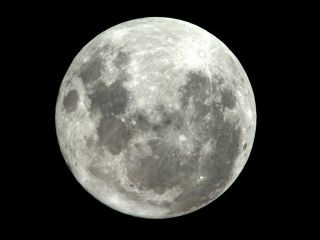Why don't all Christians observe Easter on the same date?
Easter Sunday is the traditional day that Jesus rose from the dead. If Christians can agree on anything, certainly it should be this most sacred of days, right?
The truth is all Christians do celebrate this resurrection festival, but there are two major differences that distinguish how Christian communities observe it. Let's deal with what to call this festival first.
What is this holy day called?
If you grew up in a tradition strongly influenced by English, German, or Slavic, you know this holy day as Easter, but if you grew up in one of the many other Christian traditions, you have probably wondered at some point what on earth Easter actually means.
The early Christians called this holy day Pascha in Latin or Πασχα (Pascha) in Greek. The name is derived from the Aramaic פסחא (pisḥa), which in turn came from the Hebrew verb פסח (pāsaḥ), which actually means "to limp by, pass by." However, following its use in the Exodus 12 account, the verb came to mean פסח (pesaḥ), or "Passover," because the angel of the LORD "passed by" or "passed over" the houses of the Hebrews and spared the families inside. Most Christian traditions still use a variation of this word for its name:
|
Spanish |
Italian & Catalan |
Portuguese |
French |
Romanian |
|
Albanian |
Dutch |
Russian |
Danish, Norwegian (Swedish) |
Ge’ez (Coptic) |
So where did the word Easter come from and what does it mean?
For this answer we travel to medieval northern Europe of the 8th century CE and Reverend Bede, who argued that the word "Easter" came from the Old English word Ēastre or Ēostre. He explained that the month in which Pascha was celebrated among Anglo-Saxons was called Eosturmonath and that they had begun to translate this as Paschal Month and combine it with celebrations of their own traditions (De ratione temporum 15).

When is this holy day observed?
Now that we know what it's called, when is it celebrated? This is an even more difficult question. By Reverend Bede’s calculations referenced above, Christians adopted the practice of observing this mobile celebration on the first Sunday after the "ecclesiastical full moon," defined as the first full moon on or after March 21, which is typically the date of the spring or vernal equinox—the official beginning of spring when the day is exactly as long as the night. This still remains the calculation procedure today.
A Quick Way to Remember: Easter is celebrated on the first Sunday after the Paschal/Ecclesiastical Full Moon, which is the first full moon on or after the Spring Equinox. If Paschal/Ecclesiastical Full Moon is on a Sunday, Easter is celebrated on the following Sunday.
So, if this is the computation for everyone, how can some Christians observe it on different dates?
The creation of the Gregorian calendar in 1582 meant Christian traditions would have to choose between tradition and innovation. Western traditions would adopt the new calendar in 1582, when Pope Gregory XIII officially reduced the average length of the year from 365.25 days to 365.2425 days. However, "Eastern" or Orthodox traditions retained the Julian calendar established by Julius Caesar in 45 BCE. That fraction of a day translated into a 13-day difference between the two calendars over time, so what is considered March 21 on the Julian calendar corresponds to April 3 on the Gregorian calendar.
And so, among the Western Christian traditions, Easter/Pascha falls between March 22 and April 25, while on the Gregorian calendar, Orthodox Easter falls between April 4 and May 8.
Originally published April 5, 2022
